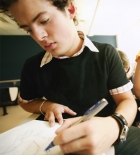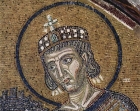Progression & Assessment
Effective planning depends on a strong vision of what it is teachers want their students to know, understand and be able to do at the end of the lesson (term/year/key stage/exam course) that they didn’t know or understand or couldn’t do before. While exam specifications provide some of this vision, many teachers have also looked to the work of historians for models of more powerful historical knowledge and argument. Since responsibility for mapping out progression at Key Stage 3 and developing systems to assess and report it effectively now rests with teachers and schools, this section includes a range of resources illustrating how teachers have developed and implemented such systems. It also includes a number of research articles (on which many of those teachers have also drawn) about common patterns of development in students’ historical thinking. Read more
-

Using ‘Assessment for Learning' to help students assume responsibility
ArticleClick to view -

Pupil-led historical enquiry: what might this actually be?
ArticleClick to view -

Are we creating a generation of 'historical tourists'?
ArticleClick to view -

Building and assessing a frame of reference in the Netherlands
ArticleClick to view -

What is APP?
ArticleClick to view -

What is bias?
ArticleClick to view -

Opportunities, challenges and questions: continual assessment in Year 9
ArticleClick to view -

Dr Black Box or How I learned to stop worrying and love assessment
ArticleClick to view -

Nutshell 133
ArticleClick to view -

'I just wish we could go back in the past and find out what really happened': progression in understanding about historical accounts
ArticleClick to view

